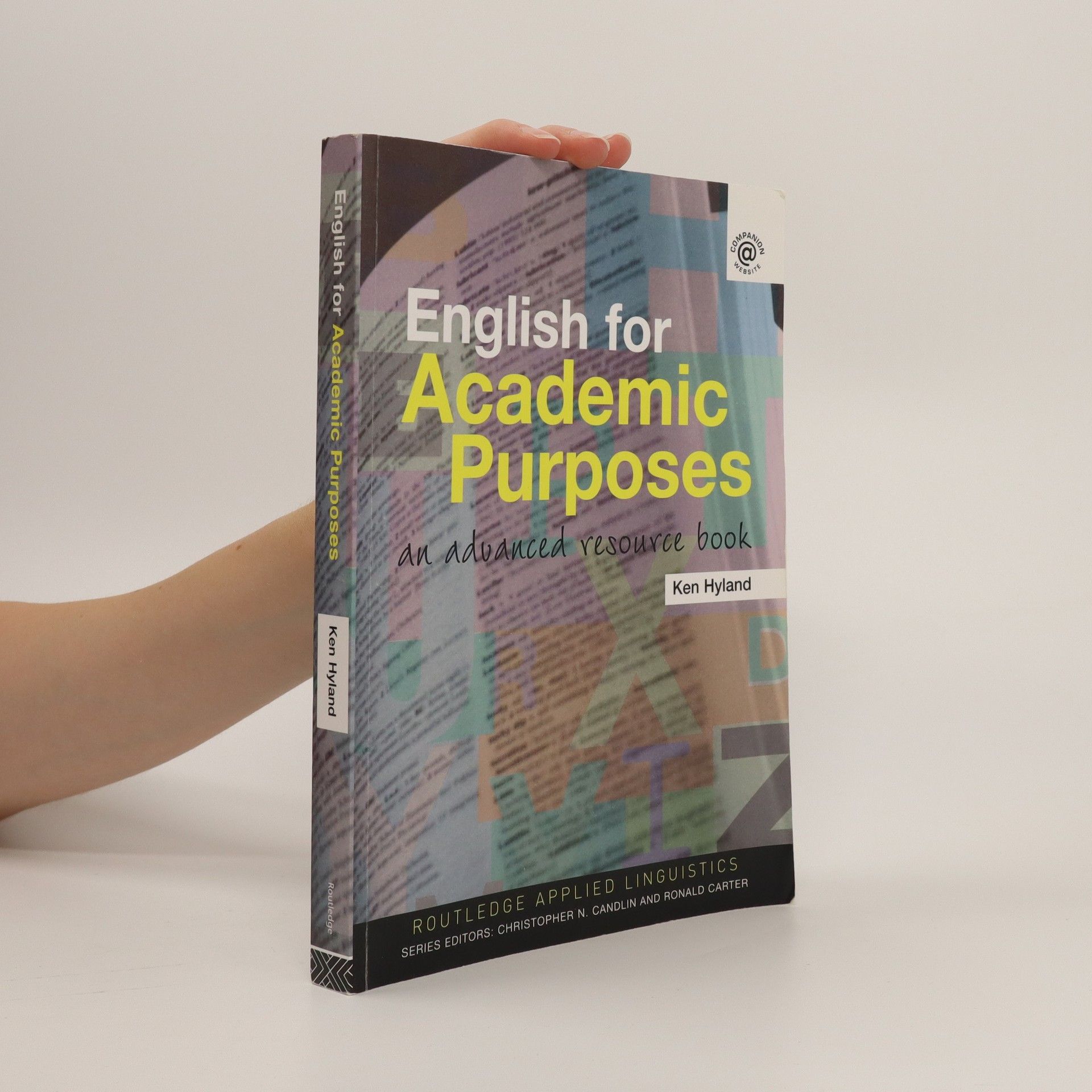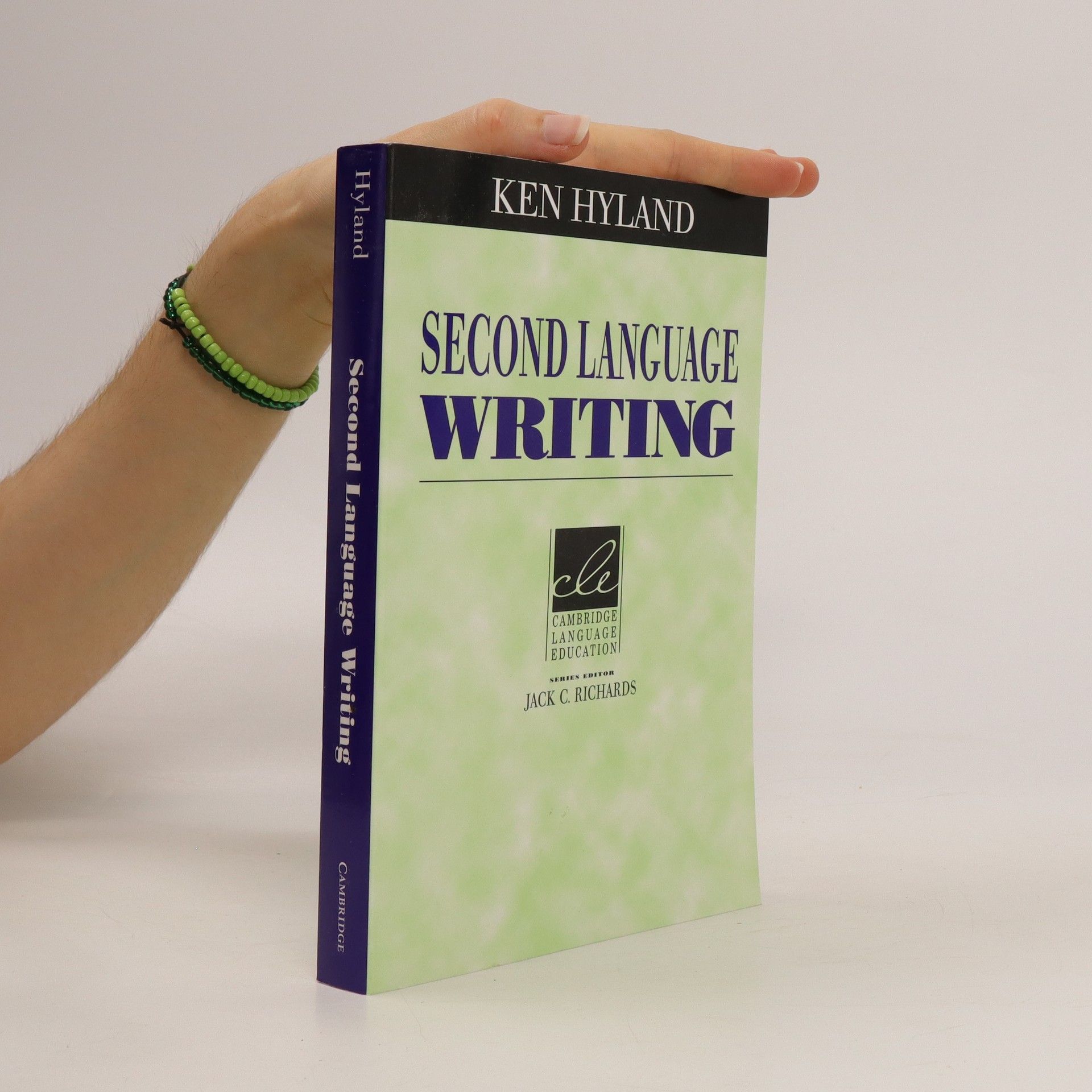Why do engineers "report" while philosophers "argue" and biologists "describe"? In the Michigan Classics Edition of Disciplinary Social Interactions in Academic Writing , Ken Hyland examines the relationships between the cultures of academic communities and their unique discourses. Drawing on discourse analysis, corpus linguistics, and the voices of professional insiders, Ken Hyland explores how academics use language to organize their professional lives, carry out intellectual tasks, and reach agreement on what will count as knowledge. In addition, Disciplinary Discourses presents a useful framework for understanding the interactions between writers and their readers in published academic writing. From this framework, Hyland provides practical teaching suggestions and points out opportunities for further research within the subject area.As issues of linguistic and rhetorical expression of disciplinary conventions are becoming more central to teachers, students, and researchers, the careful analysis and straightforward style of Disciplinary Discourses make it a remarkable asset.The Michigan Classics Edition features a new preface by the author and a new foreword by John M. Swales.
Ken Hyland Livres
Cet auteur explore le langage et son application dans l'éducation, étudiant comment le langage façonne notre pensée et comment nous pouvons l'utiliser plus efficacement dans les milieux universitaires. Son travail se concentre sur une compréhension approfondie des processus linguistiques et de leur impact sur l'apprentissage et la communication. Il vise à découvrir les nuances de l'usage de la langue, offrant de nouvelles perspectives aux écrivains universitaires. Ses analyses sont précieuses pour quiconque cherche à améliorer sa rédaction et sa compréhension des textes savants.






This text is a highly accessible and authoritative approach to the theory and practice of teaching writing to students of English. This book is an accessible and authoritative approach to the theory and practice of teaching writing to students of English. It sets out the key issues in second language writing instruction to offer both pre-service and in-service teachers a guide to writing instruction grounded in current theory and research. The author takes the stance that student writers not only need realistic strategies for drafting and revising, but also a clear understanding of genre to structure their writing experience according to the demands and constraints of particular target contexts. This book will be extremely useful to prospective and practicing teachers alike.
English for Academic Purposes
- 336pages
- 12 heures de lecture
This book "introduces the major theories, approaches and controversies in the field. [It] gathers together influential readings from key names in the discipline, including: John Swales, Alastair Pennycook, Greg Myers, Brian Street and Ann Johns. [It] provides numerous exercises as practical study tools that encourage in students a critical approach to the subject. Written by an experienced teacher and researcher in the field, 'English for academic purposes' is an essential resource for students and researchers of applied linguisitics." - back cover.
Teaching and Researching Writing
- 366pages
- 13 heures de lecture
Focusing on the interplay between writing theory and pedagogy, this edition offers a comprehensive guide that highlights how research informs teaching practices. It serves as an authoritative resource for educators, emphasizing the importance of integrating scholarship into effective writing instruction.
An engaging, advanced-level introduction to the emerging field of discourse studies of identity, with particular reference to academic contexts. Disciplinary Identities uses findings from corpus research to present fascinating insights into the relationship between author identity and disciplinarity in academic writing. Ken Hyland draws on a number of sources to explore how authors convey aspects of their identities within the constraints placed upon them by their disciplines' rhetorical conventions. He promotes corpus methods as important tools in identity research, demonstrating the effectiveness of keyword and collocation analysis in highlighting both the norms of a particular genre and an author's idiosyncratic choices. Also available separately as a hardback.show more
Metadiscourse
- 296pages
- 11 heures de lecture
First released in 2005, Ken Hyland's Metadiscourse has become a canonical account of how language is used in written communication. 'Metadiscourse' is defined as the ways that writers reflect on their texts to refer to themselves, their readers or the text itself. It is a key resource in language as it allows the writer to engage with readers in familiar and expected ways and as such it is an important tool for students of academic writing in both the L1 and L2 context. This book achieves for main goals: - to provide an accessible introduction to metadiscourse, discussing its role and importance in written communication and reviewing current thinking on the topic - to explore examples of metadiscourse in a range of texts from business, academic, journalistic, and student writing - to offer a new theory of metadiscourse - to show the relevance of this theory to students, academics and language teachers The book shows how writers use the devices of metadiscourse to adjust the level of personality in their texts, to offer a representation of themselves and their arguments. It shows how these tools help the reader organise, interpret and evaluate the information presented in the text. Knowing how to identify metadiscourse as a reader is a key skill to be learnt by students of discourse analysis and this book makes this a central goal.